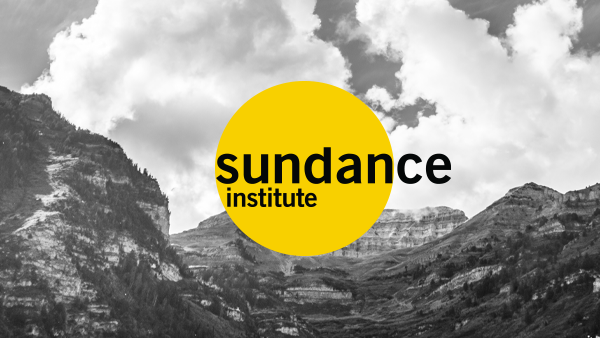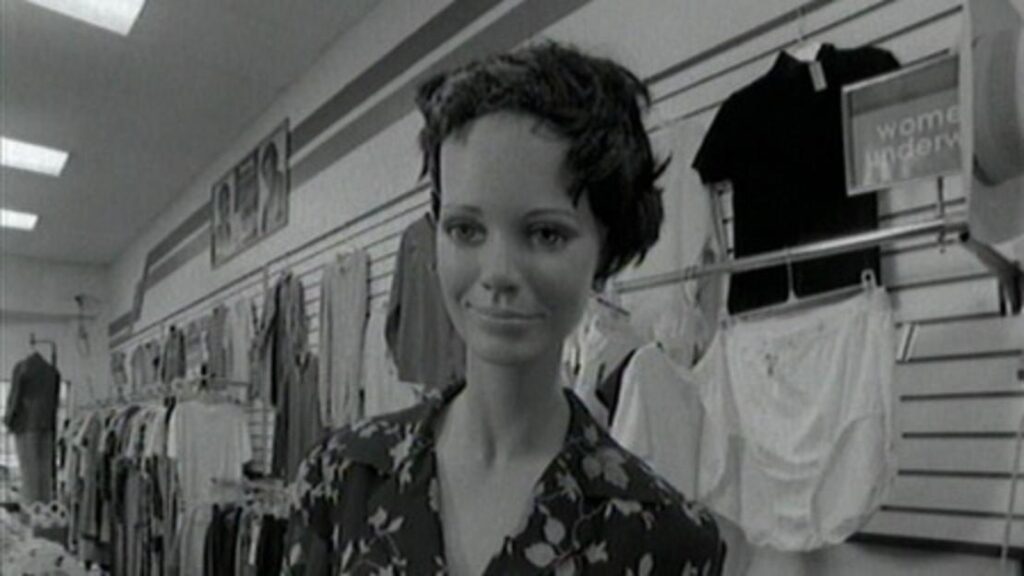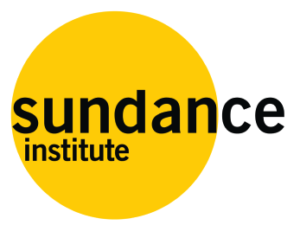The Latest

Sundance Institute Names Julia Bloch Sally Menke Editing Fellow
Los Angeles, CA – Sundance Institute today announced that Julia Bloch is the recipient of the Sally Menke Memorial Fellowship, created in memory of the organization’s close friend and inspired mentor who died in September of 2010.
“A talented and lauded film editor, Menke was deeply invested in Sundance Institute as a long-time Creative Advisor for the Institute’s Labs and Rough Cut Screenings. said Michelle Satter, Founding Director of the Sundance Institute Feature Film Program.

National Endowment for the Arts Announces Grant to Sundance Institute
LOS ANGELES, CA—Rocco Landesman, Chairman of the National Endowment for the Arts, today announced that Sundance Institute has been recommended for a grant of $150,000 to support the Institute’s work in feature film. Sundance Institute is one of 1,145 not-for-profit national, regional, state, and local organizations recommended for a grant as part of the federal agency’s second round of fiscal year 2011 grants. In total, the Arts Endowment will distribute more than $88 million to support projects nationwide.

Sundance Institute Economy Brings $70.8 Million to Utah with 2011 Sundance Film Festival; Highlights
Park City, UT – The 2011 Sundance Film Festival generated an overall economic impact of $70.8 million for the State of Utah, supported over 1600 jobs, generated over $27 million in media exposure and provided nearly $6 million in tax revenue, according to the annual economic and demographic study conducted by the University of Utah’s Bureau of Economic and Business Research at the David Eccles School of Business (BEBR). The nonprofit Sundance Institute announced the findings today, which were generated using an economic impact model known as RIMS II, developed by the U.

Sundance Institute Announces 2011 NativeLab Fellows, Expands Workshops & Screenings for Indigenous A
Los Angeles, CA. — Sundance Institute announced today the four fellows and projects selected for the 2011 NativeLab Fellowship. Artists selected will be part of a development program aimed at providing continuous and direct support to Native American, Native Hawaiian, and Alaskan Native film artists.

On to Michigan: Dispatches from Sundance Institute’s Film Forward Program
Two Sundance Institute staffers arrived in Michigan for the next stop on the Film Forward tour. A Michigan native and manager of the Institute’s Indigenous Program, D. Owl Johnson discusses his hopes for the next few days while Film Forward manager Brittany Ballard previews upcoming events.

Jared Hess and Aaron Schneider Talk About the Art of Making Short Films
“It’s so fun to be able to explore what your voice is by doing a short film,” said Napoleon Dynamite director Jared Hess, to a wide-eyed crowd at Columbia College Chicago this past Saturday. “For me, I think there are subject matters that lend themselves to the short form. Aspects of life, things that happen, are better suited for a short film.

Sundance Institute Theatre Lab to Workshop ‘Paper Dolls’
NEW YORK CITY — The Sundance Institute Theatre Program today announced it will be workshopping from May 17-29, 2011, PAPER DOLLS, a new play written by the Program’s Producing Artistic Director Philip Himberg and directed by Mark Brokaw. This mini-lab will offer Himberg rehearsal space with actors as well as critiques from Institute alumni Doug Wright (I am My Own Wife) and Jessica Hagedorn (Dogeaters). Himberg has adapted the play from documentary film of the same name by Israeli filmmaker Tomer Heymann.

Kirsten Johnson: A Lightbulb on Storytellers
Filmmaker Kirsten Johnson was funded by the ‘Stories of Change’ initiative to create a film based on Skoll-supported social entrepreneur Sakena Yacoobi, a short version of which premiered at the Skoll World Forum in 2010. Johnson attended the Skoll World Forum as a Sundance Institute Doc Program Fellow in April 2011. When I was 16 years old, I had the role of “Marion” in a high school play of Absurd Person Singular by Alain Ayckbourn.

Jay Duplass on Making ‘Kevin,’ a Documentary About the Mysterious Austin Musician Kevin Gant
Jay Duplass attended the 2010 Sundance Film Festival with his feature Cyrus and participated as a panelist at last year’s ShortsLab: LA. Along with his brother Mark, he has previously screened features Baghead and The Puffy Chair at the Festival.
A few years ago, I was looking for inspiration, my college hero, Kevin Gant, came to mind, as he has again and again over the past 20 years.

The Native Forum Goes to Native Lands
This May the Sundance Institute Native American and Indigenous Program is venturing across Indian Country to bring the Native Forum to Native Lands. This journey coincides with Lab Fellow and Festival Alum Taika Waititi being highlighted as the Sundance Alumni Advisory Board Member of the month. So prepare to be blogged, tweeted, eblasted, and otherwise made aware of 20+ years of Native Cinema made possible by Sundance Institute.

‘Winter’s Bone’ Producer Kate Dean on Bringing the Film to China
There’s a long-standing joke of how far China is: it’s the other side of the world. When I was little, I would imagine digging through the center of the earth straight to China. The little girl I saw on the opposite side of the planet was part doppelganger, part alien.

Sundance Institute Announces 14 Projects for 2011 June Directors and Screenwriters Labs
Los Angeles, CA — Sundance Institute today announced the 14 projects selected for its annual June Directors and Screenwriters Labs, taking place at the Sundance Resort in Utah May 30 – June 30, 2011. Under the leadership of Michelle Satter, Director of the Sundance Feature Film Program, and the artistic direction of Gyula Gazdag, the projects selected for this year’s program include emerging filmmakers and projects from the United States, Israel, Romania, Mexico, the Philippines and Algeria. Sundance Institute is marking the 30th anniversary of its first Directors Lab, led by Robert Redford and Satter in 1981.

Presidents Committee on the Arts and the Humanities (PCAH) and Sundance Institute
WASHINGTON, D.C. – On May 12, the President’s Committee on the Arts and the Humanities and the nonprofit Sundance Institute will showcase five U.

Aurora Guerrero on Finding Strength in Relationships in ‘Mosquita y Mari’
Aurora Guerrero first arrived at the Sundance Film Festival in 2005 with her short film Pura Lengua (All Tongue). A 2005 Sundance Institute Ford Foundation Fellowship recipient, Mosquita y Mari is her first feature-length film.My first inspirations were writers.

Sundance Institute to Host Inaugural Los Angeles Benefit Celebrate Sundance Institute
(Los Angeles, CA – April 26, 2011) – Sundance Institute, the world-renowned nonprofit arts organization, has announced it will host its first-ever Los Angeles benefit on Wednesday, June 8 from 7:00 – 10:00 PM at Franklin Canyon Ranch in Beverly Hills, CA. Celebrate Sundance Institute, a festive evening to celebrate the Institute founded by Robert Redford, will be hosted by the Sundance Institute Board of Trustees and Celebration Host Committee including Sundance Alumni Jennifer Aniston, Miguel Arteta, Don Cheadle, Lisa Cholodenko, Joseph Gordon-Levitt, Jon Hamm, Brit Marling, David Hyde Pierce, Josh Radnor, Paul Rudd, Mark Ruffalo, Quentin Tarantino, Ondi Timoner, Mike White and Alfre Woodard among others. Full host committee listed below.

